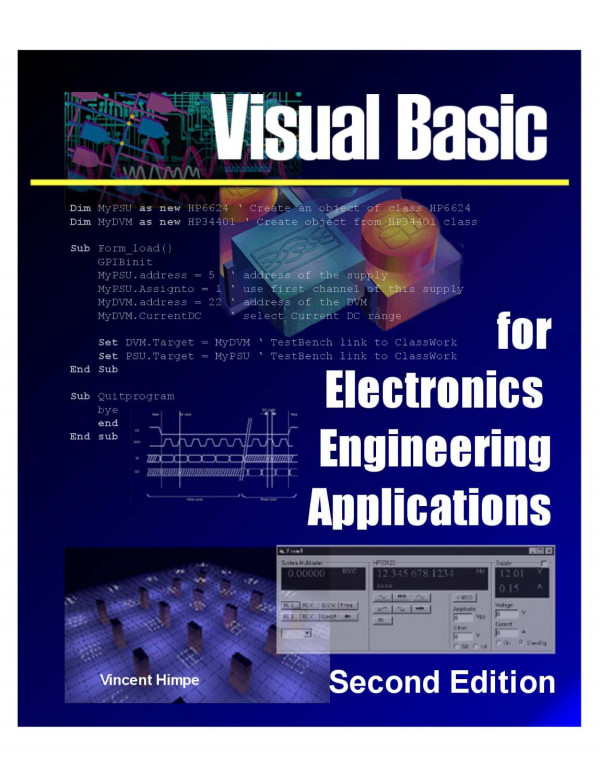

Most ebook files are in PDF format, so you can easily read them using various software such as Foxit Reader or directly on the Google Chrome browser.
Some ebook files are released by publishers in other formats such as .awz, .mobi, .epub, .fb2, etc. You may need to install specific software to read these formats on mobile/PC, such as Calibre.
Please read the tutorial at this link: https://ebookbell.com/faq
We offer FREE conversion to the popular formats you request; however, this may take some time. Therefore, right after payment, please email us, and we will try to provide the service as quickly as possible.
For some exceptional file formats or broken links (if any), please refrain from opening any disputes. Instead, email us first, and we will try to assist within a maximum of 6 hours.
EbookBell Team

4.4
32 reviews
ISBN 10: 0905705688
ISBN 13: 9780905705682
Author: Vincent Himpe
The PC has longtime outgrown its function as a pure computer and has become an all-purpose machine. This book is targeted towards those people that want to control existing or self-built hardware from their computer.
Using Visual Basic as Rapid Application Development tool we will take you on a journey to unlock the world beyond the connectors of the PC.
After familiarizing yourself with Visual Basic, its development environment and the toolset it offers, items such as serial communications, printer ports, bitbanging, protocol emulation, ISA, USB and Ethernet interfacing and the remote control of test-equipment over the GPIB bus, are covered in extent. Each topic is accompanied by clear, ready to run code, and where necessary, schematics are provided that will get your projects up to speed in no time.
This book will show you advanced things like: using tools like Debug to find hardware addresses, setting up remote communication using TCP/IP and UDP sockets and even writing your own internet servers. Or how about connecting your own block of hardware over USB or Ethernet and controlling it from Visual Basic. Other things like internet-program communication, DDE and the new graphics interface of Windows XP are covered as well.
All examples are ready to compile using Visual Basic 5.0, 6.0, NET or 2005. Extensive coverage is given on the differences between what could be called Visual Basic Classic and Visual basic .NET / 2005.
Introduction to Visual Basic
Setting Up the Development Environment
Basics of Programming in Visual Basic
Variables, Data Types, and Operators
Control Structures: Loops and Conditionals
Functions and Subroutines
Working with Forms and Controls
File Handling and Data Storage
Interfacing with Electronic Devices
Data Acquisition and Signal Processing
Graphical Representation of Data
Troubleshooting and Debugging
Case Studies in Electronics Applications
Advanced Applications and Project Examples
References and Further Reading
is visual basic easy to learn
is visual basic easy
is visual basic used anymore
is visual basic programming still used
visual basic for applications classes
excel visual basic for applications
Tags: Vincent Himpe, electronics, engineering